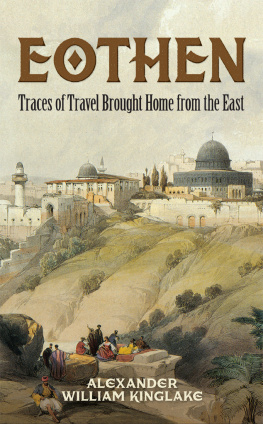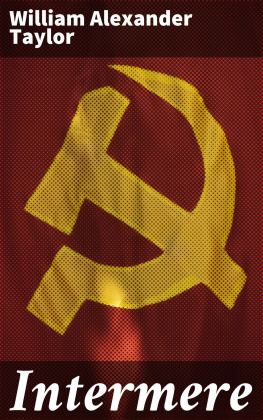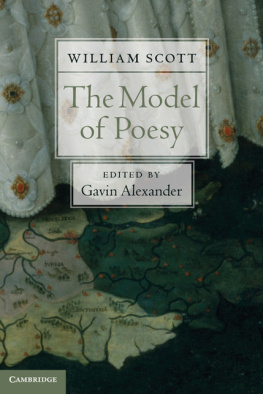Alexander William Kinglake - Eothen; with an Introduction and Notes
Here you can read online Alexander William Kinglake - Eothen; with an Introduction and Notes full text of the book (entire story) in english for free. Download pdf and epub, get meaning, cover and reviews about this ebook. year: 2020, publisher: Lector House, genre: Detective and thriller. Description of the work, (preface) as well as reviews are available. Best literature library LitArk.com created for fans of good reading and offers a wide selection of genres:
Romance novel
Science fiction
Adventure
Detective
Science
History
Home and family
Prose
Art
Politics
Computer
Non-fiction
Religion
Business
Children
Humor
Choose a favorite category and find really read worthwhile books. Enjoy immersion in the world of imagination, feel the emotions of the characters or learn something new for yourself, make an fascinating discovery.

- Book:Eothen; with an Introduction and Notes
- Author:
- Publisher:Lector House
- Genre:
- Year:2020
- Rating:5 / 5
- Favourites:Add to favourites
- Your mark:
- 100
- 1
- 2
- 3
- 4
- 5
Eothen; with an Introduction and Notes: summary, description and annotation
We offer to read an annotation, description, summary or preface (depends on what the author of the book "Eothen; with an Introduction and Notes" wrote himself). If you haven't found the necessary information about the book — write in the comments, we will try to find it.
Eothen; with an Introduction and Notes — read online for free the complete book (whole text) full work
Below is the text of the book, divided by pages. System saving the place of the last page read, allows you to conveniently read the book "Eothen; with an Introduction and Notes" online for free, without having to search again every time where you left off. Put a bookmark, and you can go to the page where you finished reading at any time.
Font size:
Interval:
Bookmark:

A. W. KINGLAKE
By ANON
FROM A PAINTING
By the AUTHOR
METHUEN & CO.
36 ESSEX STREET, W.C.
MDCCCC
CHAP. | PAGE. |
Introduction | |
Preface | |
I. | Over the Border |
II. | Turkish Travelling |
III. | Constantinople |
IV. | The Troad |
V. | Infidel Smyrna |
VI. | Greek Mariners |
VII. | Cyprus |
VIII. | Lady Hester Stanhope |
IX. | The sanctuary |
X. | The Monks of Palestine |
XI. | Galilee |
XII. | My First Bivouac |
XIII. | The Dead Sea |
XIV. | The Black Tents |
XV. | Passage of the Jordan |
XVI. | Terra Santa |
XVII. | The Desert |
XVIII. | Cairo and the Plague |
XIX. | The Pyramids |
XX. | The Sphinx |
XXI. | Cairo to Suez |
XXII. | Suez |
XXIII. | Suez to Gaza |
XXIV. | Gaza to Nablus |
XXV. | Mariam |
XXVI. | The Prophet Damoor |
XXVII. | Damascus |
XXVIII. | Pass of the Lebanon |
XXIX. | Surprise of Satalieh |
Appendix |
Font size:
Interval:
Bookmark:
Similar books «Eothen; with an Introduction and Notes»
Look at similar books to Eothen; with an Introduction and Notes. We have selected literature similar in name and meaning in the hope of providing readers with more options to find new, interesting, not yet read works.
Discussion, reviews of the book Eothen; with an Introduction and Notes and just readers' own opinions. Leave your comments, write what you think about the work, its meaning or the main characters. Specify what exactly you liked and what you didn't like, and why you think so.








